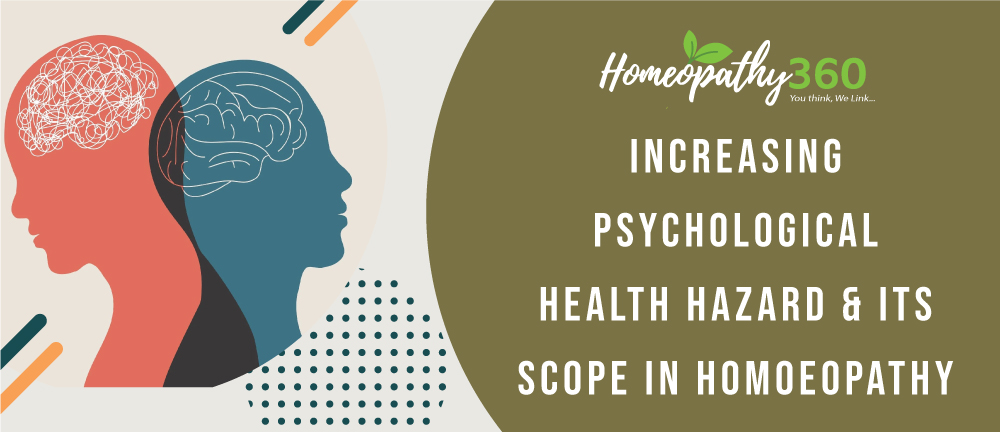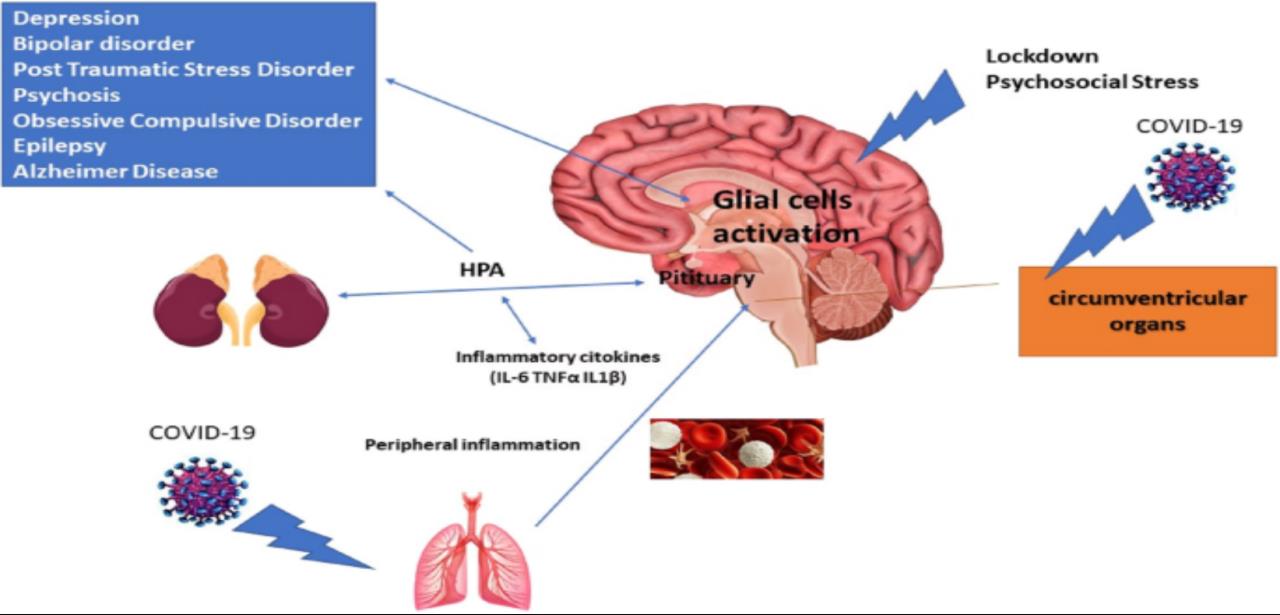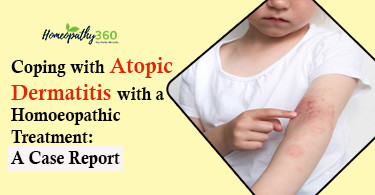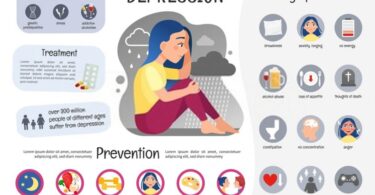
ABSTRACT
Mental health is vital for the growth and productivity of every society and for a healthy and happy life.
Homoeopathy gives great importance to mental health both in the treatment of physical and mental
illness. The Homoeopathic understanding of health is intimately connected to its understanding of the
mind in general. They generally assume that body and mind are dynamically interconnected and that
both directly influence each other. Homoeopaths base virtually every Homoeopathic prescription of the
physical and psychological symptoms of the sick person. Psychological symptoms often play a primary
role in the selection of the correct Medicine.
KEYWORDS
Homoeopathy, psychological disorders, miasm, selection of medicine, individualization
INTRODUCTION [1,2]
Homoeopathy based on the philosophy of treating the whole person based on mind, body and lifeforce relationship. In this concept, health is considered a perfect state of harmony of functions in mind-body-life force and illness is often the result of disharmony. The disharmony can come from a dysfunction in any one. Holistic health care believes that a dysfunction in one effects the whole person and not just that one part of the body. Holism promotes that a human being must be treated together to achieve healing rather than simply treating a person for a specific illness. Holistic health looks into the need of the sick and provides customized care. Understanding the patient is the cornerstone in Homoeopathic health care.[1,2]
CURRENT DAY MENTAL HEALTH [2-4]
Nearly 150 million Indians needs mental health care services but less than 30 million are
seeking care, according to national mental health survey.
The prevalence of mental health disorders in India is estimated to be 10%.
For every 1000 people, prevalence of mental disorders is
1. Neurotic and other disorders-70%.
2. Substance abuse-7%.
3. Bipolar affective disorder-12%.
4. Schizophrenia-2% . [2]
A study from the Pune centre of the World Mental Health Survey mentions an overall prevalence rate of mental disorders to be 5%, with rates being higher among men as compared to women . [2] Depression was found to be the most common disorder whether lifetime (3.14%) or during the previous 12-month period (1.7%). The study also mentioned that among those afflicted with one or the other mental disorder, treatment was sought by only about 5% and 2.6 million young people die each year. The prevalence of childhood mental disorder is more in Bihar compared to other states in the country. A recent report published in Lancet Psychiatry stated that Bihar & other states falling in low Socio Demographic Index (SDI) reported more number of mental disorder cases related to children. On other hand adult mental disorder high in high SDI states. IDID (Idiopathic Developmental Intellectual Disability) or Mental retardation in Bihar-252 highest in country and Uttar Pradesh is 215, due to poor health infrastructure. But Anxiety disorder in Bihar is 299 which is less than several southern states, in Tamil Nadu-836, Andrapradesh-793 [3]. A survey of 200 UK Homoeopaths (Chatfield & Duxbury, 2010) suggested that a substantial number of people with mental health concerns choosing Homoeopathy. The most common disorder is-Anxiety and Mood disorder.[4]

HOW PSYCOLOGICAL IMBALANCE OCCURS
Fig-1 Pathophysiology of Mental health. [2]
PSYCHOLOGICAL HEALTH HAZARD & HOMOEOPATHY [7]
Homoeopathy can be used to treats all modern psychiatric conditions including 1-3 (DSM-4
conditions) below-
1. Mood Disorder (Such as-Depression and Anxiety).
2. Thought Disorder (Such as-OCD, Paranoia, Schizophrenia).
3. Personality Disorder. Additionally, Homoeopathic remedy can be offered to treat large variety of “Emotional/Mental” states that are NOT considered to be diseases including-stubbornness, fear, phobia, emotional numbness, anger, jealousy, being extremely reserved and shy, rudeness, rigidity, clinginess, workaholic tendencies etc.
Homoeopath don’t separate mind & body. Homoeopaths seeks to find a medicine that matches the totality of the person’s physical & psychological symptom, irrespective of “Which comes first”. Even the “Which comes first” issue is much more complex & deceptive than one might initially presume. From Homoeopathic point of view, the prevalence of mental illness in our society is not simply the result of living in a fast-paced, stressful society, but also because our medical care system has effectively suppressed various physical illness. Homoeopaths assert that by treating symptoms as “cause” rather than as “effects”, conventional medicine masks the symptoms without curing the underlying disease process. Homoeopathic medicine should be individually prescribed based on totality of symptoms. The correct Homoeopathicmedicine will catalyze a healing process that will raise the person’s overall level of health. [7]
MODERN CONCEPT OF PSYCHOLOGICAL HAZARDS
Any pattern of behaviour that causes people significantdistress,causes them to harm others or harm in performing their daily activities.
HAHNEMMANN’S CONCEPT OF PSYCHOLOGICAL HAZARDS
Dr. Hahnemann has paid a lot of attention towards the understanding of mental illness. Infect he was one of first physicians to see the mentally ill patients as “Sick Individuals” requiring empathy and proper medical care (Haehl, 1995). According to him, the mind and body are not two absolutely separate entities but they form an indivisible whole inseparable in fact but distinguishable by mind for easy understanding. In natural disease physical disturbances are often found associated with their mental counterparts. Illness is the result of biological as well as physiological and psychological events. [5]

Fig-2 Modern concept & Hahnemann’s concept of Psychological Disorder.
GUIDELINES FOR MANAGEMENT IN PSYCHOLOGICAL HAZARDS FROM ORGANON OF MEDICINE [5]
In Mental and emotional diseases resulting from corporeal maladies which can only by cured Homoeopathic antipsoric medicine conjoined with carefully regulated mode of life, an appropriate psychical behaviour towards the patient (Sec-228). The physician must be maintained the auxiliary mental regimen, which includes-
1. In case of Furious mania we must oppose calm
intrepidity and cool.
2. Firm resolution.
3. A mute display of commiseration in looks and gestures.
4. To senseless chattering.
5. A silence but not fully inattentive.
6. Prevent destruction and injury of surrounding.
7. Avoid corporeal punishments. (p. 116) He/she must be free from all over-exertion of mind & exciting emotions. (Sec-263)
8.The treatment of the violent insane maniac and melancholic can take place only in an institution specially arranged for their treatment but not within the family circle of the patient (Sec-229FN). [5]
FREQUENTY USED HOMOEOPATHIC REMEDIES FOR MENTAL HEALTH ISSUES[6]
There are some common terminology which have been used different psychological condition and i also given few medicine with rubrics from Kent’s repertory (Only first Grade Medicine)
1. ABSENT-MINDED→ Apis., Cann-i., Caust., Cham., Hell., Lach., Mez., Nat-m., Nux-m., Plat., Puls., Sep., Verat. (7 p. 1)
2. ABSORBED→ Hell., Mez., Nux-m., Sulph. (7 p. 1)
3. ANGER→ Acon., Anac., Ars., Aur., Bry., Cham., Hep., Ign., Kali-c., Kali-s., Lyc., Nat-m., Nit-ac., Nux-v., Petr., Sep., Staph., Sulph. (7 p. 2)
4. ANXIETY→ Acon., Arg-n., Ars., Ars-i., Aur., Bell., Bism., Bry., Cact., Calc., Calc-p., Calc-s., Camph., Cann-i., Carb-s., Carb-v., Caust., Chin., Con., Dig., Iod., Kali-ar., Kali-c., Kali-p., Kali-s., Lyc., Mez., Nat-a., Nat-c., Nit-ac., Phos., Psor., Puls., Rhus-t., Sec., Sulph., Verat. (7 p. 4)
5. DELUSIONS→ Arg-n., Bell., Cann-i., Cocc., Hyos., Ign., Lach., Petr., Ph-ac., Sabad., Stram., Sulph. (7 p. 20)
6. FEAR→ Acon., Arg-n., Aur., Bell., Bor., Calc., Calc-p., Carb-s., Cic., Dig., Graph., Ign., Kali-ar., Lyc., Lyss., Nat-c., Phos., Plat., Psor., Sep., Stram. (7 p. 42)
7. GRIEF→ Aur., Caust., Ign., Nat-m., Puls. (7 p. 50)
8. HOME-SICKNESS→ Caps., Carb-an. Ph-ac. (7 p. 51)
9. JEALOUSY→ Hyos., Lach. (7 p. 60)
10. LASCIVIOUSNESS→ Hyos., Lach., Lil-t., Orig.,
Phos., Pic-ac., Plat., Staph. (7 p. 61)
11. LAUGHING→ Cann-i., Ign., Stram. (7 p. 61)
12. SUICIDAL, disposition→ Aur., Aur-m., Nat-s. (7 p. 85)
REFERENCES
1. Dc Nhp Cc. Homoeopathy and mental health, 2015.
2. Mental health landscape in India. National mental health survey.
3. Nezami Sheezan. Childhood mental disorder high in bihar-study. Patna: Times Of India,02/01/2020.
4. Chatfield J, Duxbury K. Practical & ethical implications of homoeopathy in mental health care. Uk: S.N, 2010.
5. Hahnemann Samuel, organon of medicine, 5th &6th edition. Organ on of medicine, 5th & 6th edition. Kolkata: Paul medico, 2013-2014.
6. Kent JT. Repertory of the homoeopathic materia medica. Repertory of the homoeopathic materia medica. Kolkata: Rup publication, 2013-14.
7.Ullman Dana. The homoeopathic approach to treatment of anxiety & depression: A review of the history and present status. Camelia: Homoeopathic Educational
Services. 2008; 14:119-22.
ABOUT THE AUTHORS:
Dr.Tamara Afroza*[A], Dr.Biswajit Bera[B], Dr.Umesh Kumar [C],Dr.Ashis Biswas[D]
[A]* MD, Hom. (Part-II pursuing) in Practice of Medicine from The Calcutta HomoeopathicMedical College & Hospital. B.H.M.S (Honours) from D.N.DE Homoeopathic Medical College
and Hospital. Kolkata, WB.
[B] Lecturer- Dept. of Practice of Medicine,P.C.M Homoeopathic Hospital and college.MD (Hom) in Practice of Medicine from The Calcutta Homoeopathic Medical College & Hospital.Kolkata, WB. [C] HMO,SHD:Tulsipur Shrawasti,Govt of Uttar Pradesh, MD(Hom) Part-II in organon ofmedicine from National Institute Of Homoeopathy(NIH), B.H.M.S from NIH, Kolkata, WB.
[D] MD (Hom) in Practice of Medicine from The Calcutta Homoeopathic Medical College &Hospital. B.H.M.S from The Calcutta Homoeopathic Medical College & Hospital. Kolkata, WB.




